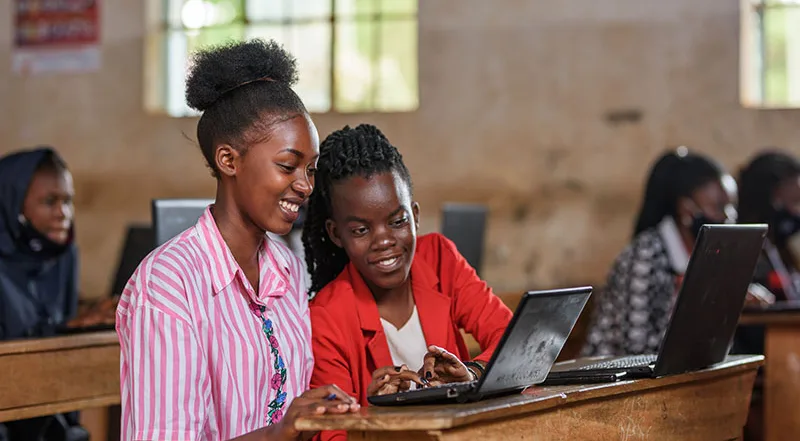In Uganda, youth civil society organizations (CSOs) play a vital role in advocating for change, addressing societal issues, and empowering young people to create a better future. However, coordinating these efforts effectively is essential for maximizing impact and achieving meaningful outcomes. In this blog post, we explore how harnessing the power of digital platforms can strengthen youth civil society coordination in Uganda.
- Online Collaboration Spaces: Creating dedicated online platforms or communities where youth CSOs can collaborate, share resources, and exchange ideas is crucial. These spaces foster communication and coordination among organizations, breaking down geographical barriers and enabling seamless collaboration.
- Virtual Workshops and Trainings: The digital realm offers opportunities for hosting virtual workshops, webinars, and training sessions to build the capacity of youth CSOs. From advocacy to fundraising and project management, online learning modules can reach a broader audience and empower young leaders across Uganda.
- Social Media Engagement: Social media platforms serve as powerful tools for amplifying the voices of youth CSOs, raising awareness about key issues, and mobilizing support for advocacy campaigns. Regular posts, live streams, and interactive content can engage a wider audience and foster community involvement.
- Digital Resource Hub: Centralized online repositories or resource hubs provide easy access to valuable tools, guides, reports, and best practices relevant to youth civil society organizations. These platforms serve as knowledge-sharing hubs, empowering organizations with the information they need to drive change effectively.
- Crowdsourcing and Crowdfunding: Digital platforms enable crowdsourcing of ideas, feedback, and contributions from the community. Crowdfunding campaigns can also be launched to support specific youth-led initiatives, mobilizing financial resources from a diverse pool of donors passionate about youth development in Uganda.
- Virtual Networking Events: Organizing virtual networking events, conferences, and panel discussions allows youth CSOs to connect with peers, experts, and potential collaborators from across Uganda and beyond. Video conferencing tools facilitate meaningful interactions and foster partnerships among organizations with shared interests.
- Online Advocacy Campaigns: Launching online advocacy campaigns on social media platforms helps raise awareness about pressing youth issues and advocate for policy change. Engaging multimedia content and social media hashtags amplify the impact of advocacy efforts, mobilizing support for youth-led initiatives.
- Digital Storytelling: Empowering youth CSOs to share their stories, successes, and challenges through digital storytelling platforms fosters solidarity within the community. Personal narratives inspire others, build connections, and attract support for youth-driven initiatives.
- Data Visualization and Analytics: Utilizing data visualization tools and analytics helps track the impact of youth CSO activities, monitor trends, and measure progress towards shared goals. Visual representations of data inform decision-making, demonstrate impact, and advocate for change effectively.
- Online Mentorship and Peer Support: Facilitating virtual mentorship programs and peer support networks enables experienced leaders to mentor aspiring youth activists. These platforms offer guidance on organizational development, advocacy strategies, and personal growth, empowering the next generation of changemakers in Uganda.
In leveraging digital platforms, youth civil society organizations in Uganda can enhance coordination efforts, amplify their voices, and mobilize collective action to address the challenges facing young people. By embracing technology and fostering collaboration in the digital realm, we can build a stronger, more resilient youth civil society sector poised to create positive change and drive sustainable development in Uganda.
